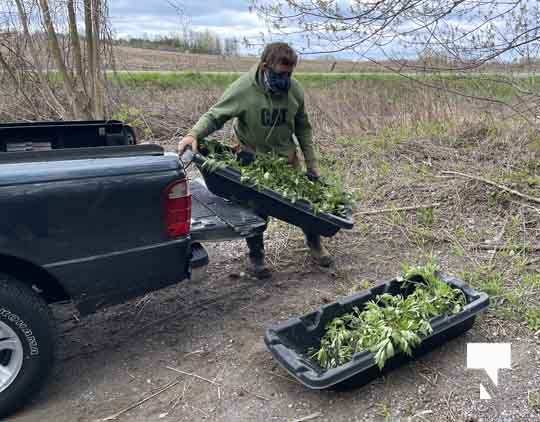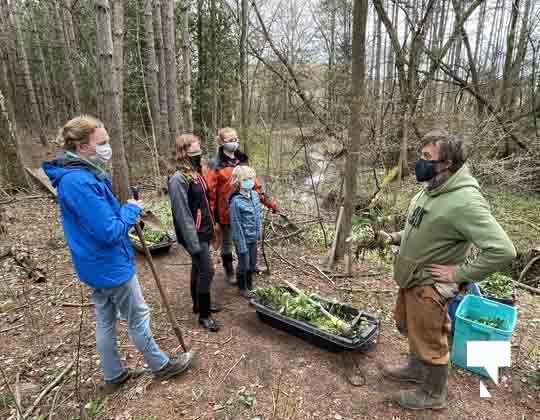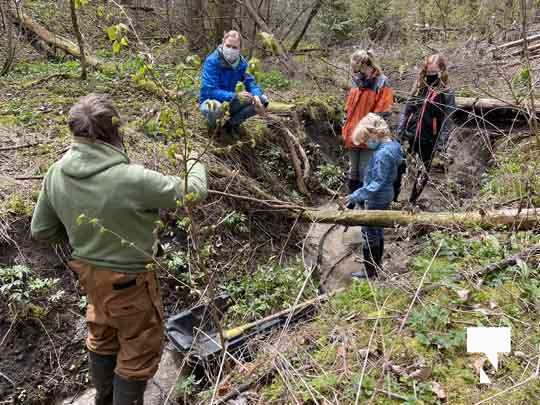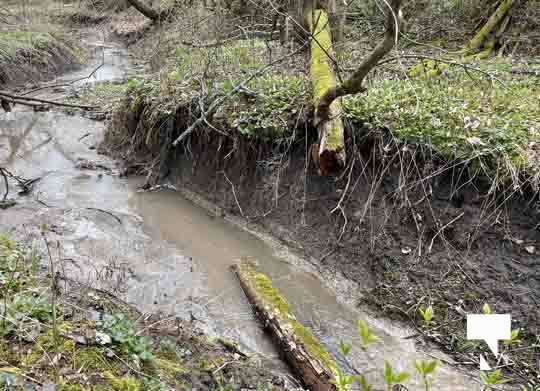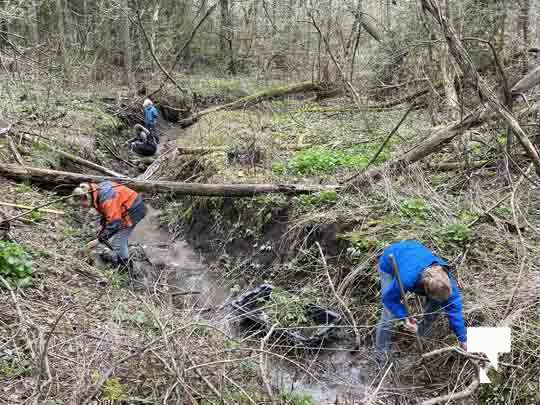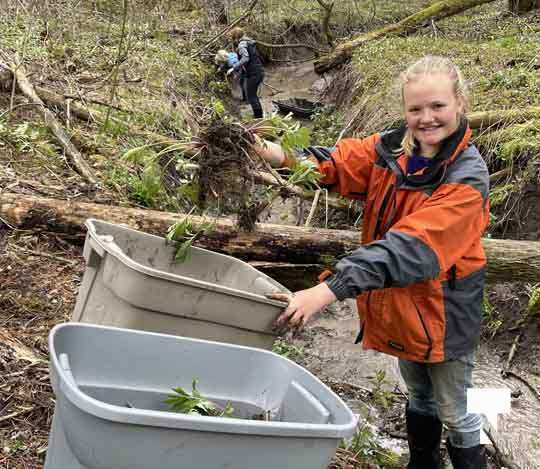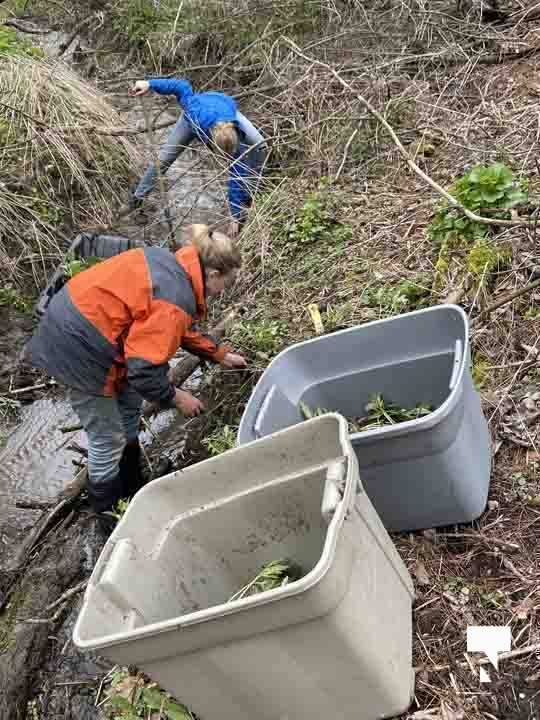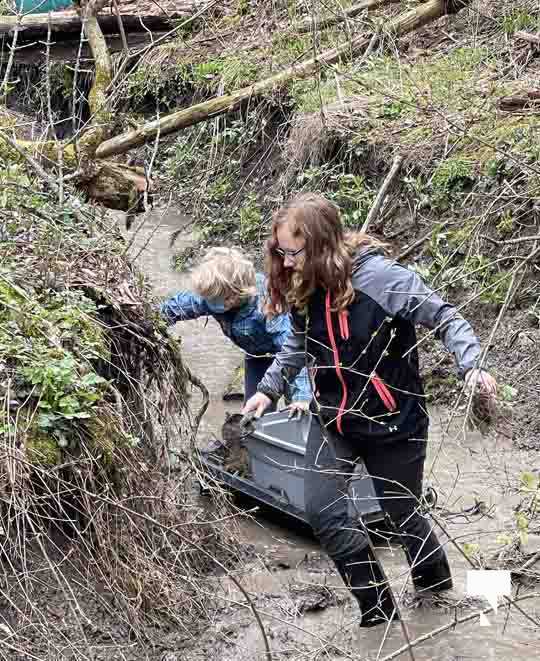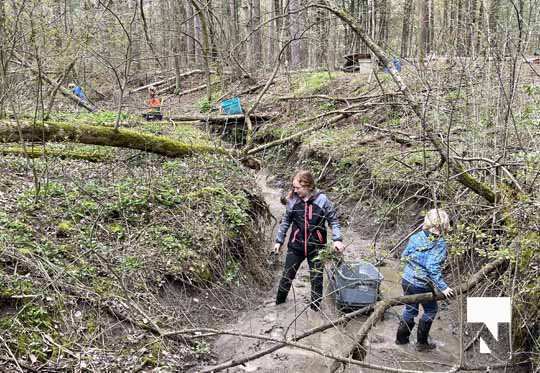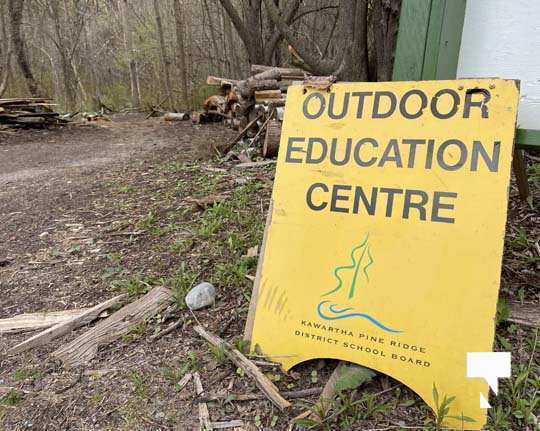By Cecilia Nasmith/Today’s Northumberland
Northumberland Land Trust Steward Mark Rupke is addressing some issues at the Laurie Lawson Outdoor Education Centre north of Cobourg to stop erosion and encourage pollinators with a plant that is new to the forest but which he has high hopes for – the green-headed coneflower.
The work will go even further, thanks to a $1,000 grant from the Invasive Species Centre that is supporting the spraying of the dog-strangling vine as well as planting native species.
These forested acres north of Cobourg are owned by the Northumberland Land Trust and operated in partnership with the Kawartha Pine Ridge District School Board. While Rupke usually attends with students, he was interviewed Friday while taking a mother and her children on a green-headed coneflower-planting expedition.
Today’s Northumberland accompanied the group who dragged in the plants on sledges and working right in the creek to embed them in the banks, Rupke sharing his own methods and offering advice.
He also explained the work of the NLT.
“What we do as stewards is, we try to repair the land, and so we remove invasive species that are taking over. When we have that erosion issue, we try to fix that up. Sometimes I will have a tree fallen in the wrong spot or something unsafe – I will try to pick that up and just maintain it in a way that is for the good of the land and for the good of people,” Rupke said.
“There are a bunch of tile drains that have been constructed which are causing a lot of erosion along this creek. I am trying to cut down on erosion.
“At the same time, people keep talking about how the pollinator species are in a lot of trouble because when they put in huge areas of one crop, there might be a lot of flowers for two weeks – and then there’s nothing, and it’s like 100 acres of desert where there are no weeds because of Round-Up. So by having areas with a wide variety of flowering plants, its a lot better for the bees and insects.”
Showing off the green-headed coneflower, he explained how it is ideal on all counts. It flowers in August, which is good for the pollinators, and its roots help bind the soil.
“I can’t find anybody who has used green-headed coneflowers for this, but it did incredibly well in my back yard and has become a good part of my back yard in a matter of three years, so I think it will do well here,” he predicted.
“What I have done a week ago has already gone from being wilty and looking sad to fully green. It looks great, so I think it’s going to do just fine here.”
Working with students most of the time, Rupke found a family that have proven to be enthusiastic recruits to the task.
“I am really enjoying this group,” he said.


